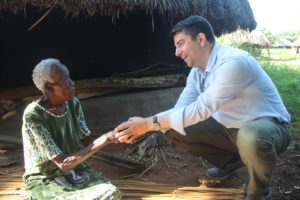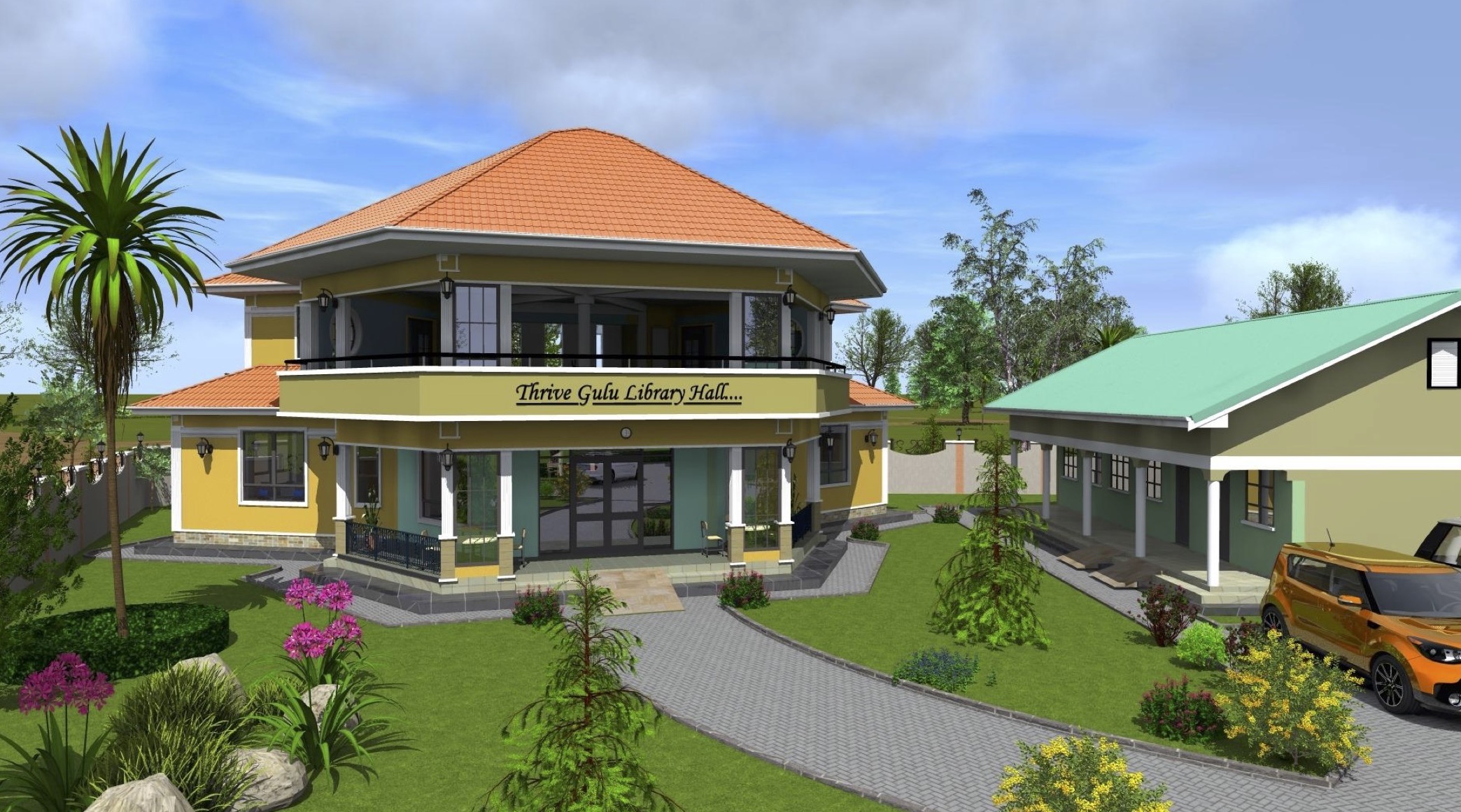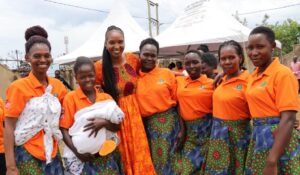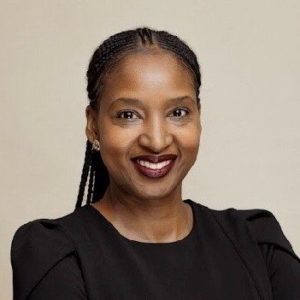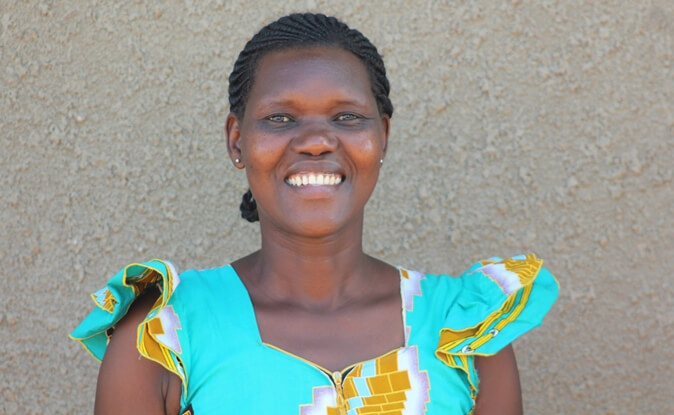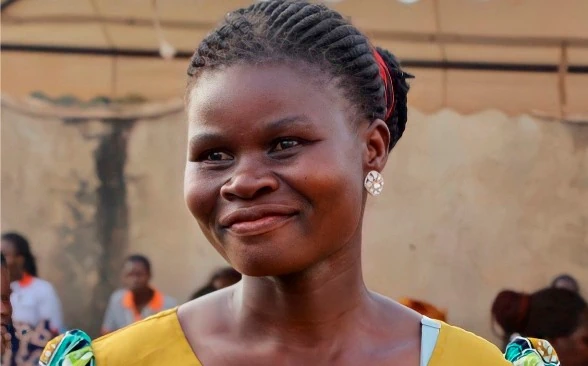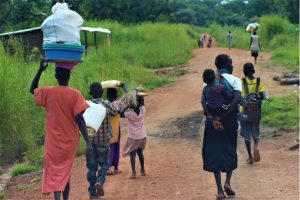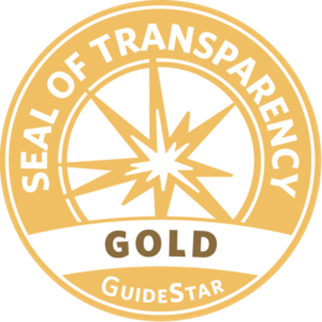By Saundra Buys
As we checked into Shalom House our first night in Kampala, we heard a blast. Soon we learned that the Al-Shabaab militant group had caused 74 deaths from suicide bombings at two sites, including an Ethiopian restaurant quite near where we were staying and at a rugby club where crowds were watching a screening of the final 2010 FIFA world cup soccer match. That night, we stayed up late talking about the bombings, our expectations for the trip, and sharing what brought each of us to that place. One of the women was ecstatic and promptly started singing “99 bottles of beer on the wall” when a couple of Irish college boys came to tell us, a group of mainly middle-aged women, to pipe down because it was late and they had to get up early.
One of the challenges facing Northern Uganda at that time was lack of housing for the many people returning to the villages from the bush and from Internally Displaced People camps. Judy Dushku, who had organized this expeditionary trip, had arranged for us to build huts for several particularly vulnerable women. When we arrived by bus at the marketplace in Gulu, we were greeted like heroes by ululating women and excited, curious children. Walking down the red dirt roads and paths of Gulu felt deeply like coming home to the red-rock country of Southern Utah where I grew up. We immediately loved the former child soldiers who took charge of the hut construction, and the women whose huts we worked on: a child head of household; a women who had lost her husband, 6 children and 6 grandchildren—all 13 members of her family—to war, and whose graves lay in the yard where her hut would be built; a deaf and blind woman wearing a raggedy Prada t-shirt. Although none of us worked as hard during that week as every African village woman did every day, someone said to our local group leader, “Where did you get these women?! They are elders! We never knew women could work like this!”
During the trip we heard from governmental and non-governmental organizations about the history and challenges of the region—the consequences of colonialism and the random division of east Africa into countries deeply divided by tribal, language, and religious differences, and the fallout of the long war with Kony’s Lord’s Resistance Army. We discussed the dilemmas facing northern Uganda: What is the priority—peace, or justice? Is peace worth giving up justice? To whom should amnesty apply? How can a region recover from an entire generation of nearly 2 million people spent in internally-displaced people camps, dependent on handouts, with near-total destruction of social networks, and where frustration and futility led to rampant alcohol abuse and gender-based violence? What is the best way to promote healing—do people need to relive, through talking, to relieve the suffering? How do psychologists listen without becoming victims of secondary trauma? What can be done about the uneasy coexistence of villagers, whose family members were abducted or brutally murdered by the LRA, and abductees who became LRA fighters returning from the war and being the recipients of international attention and support? This was heartbreakingly summarized by a mother, “Is it because my children did not kill that they are not rewarded?”
We heard from abductees. A child with feet swollen from hours of walking in the bush went to the sick bay and was told, “This is not a smiling place.” Another young woman: “I was given to a man before I could make a man.” Sitting in the dark on the steps of St. Monica’s Tailoring Centre, wringing her hands and twisting her shawl, a woman in her 20s, mother of several children born in the bush, told us about crossing a river with water up to her chin, and helplessly watching her friend being swept away by the river. She was abducted at age 10, and was soon given to a man: “I was a small girl, and he was a very big man. He had three women—he would go from one to the next to the next.” Another girl, walking on a log, heard and felt her small brother fall into the river behind her. She wanted to jump into the river after him, but the LRA commanders had said that if any of them committed suicide, the others would be tortured and killed—and so she did not jump. A woman who considered poisoning her children and then committing suicide after she returned home said, “My counselor told me, ‘At the hardest moment, under the toughest condition—that is when the breakthrough will come. It won’t last forever.”
We heard from those who lived through the years of war. Do you feel safe now?” we asked. “Yes, because at night there are no gunshots. And in the morning there are no dead bodies.”
On the first evening of our trip, Judy explained her long-standing passion to understand and relieve the impact of war on women and children. She said, “I hope there are people in this group who will feel it to be their life calling.” All who joined that first trip are forever changed by witnessing the beauty and strength of these people and appreciating more fully the critical importance of stable, moral, governments in protecting basic human rights.



On this human rights day, we mourn the violation of basic human decency that has led to so many conflicts in our world, while celebrating an increased global awareness that human rights are rights of every person, and all nations. I remember the spirit of the people of Gulu who so desired to move beyond the pain and suffering of war into a new era of thriving. And, I remember where Gulu was 10 years ago and now marvel at where Gulu is today, thanks to organizations like THRIVE. A gift to THRIVEGulu enables this leading trauma recovery organization, whose mission is rooted in the principle of human rights for all, to bring light and life to a society of survivors on the path to becoming thrivers!

*Saundra Buys, MD, is the medical director of Huntsman Cancer Institute’s High Risk Breast Cancer Clinic (HRBCC) and a professor in the Department of Medicine at the University of Utah School of Medicine. She is a member of the Cancer Control and Population Sciences Program. She has cared for patients with all types of cancer since 1982 and specializes in breast cancer.*


